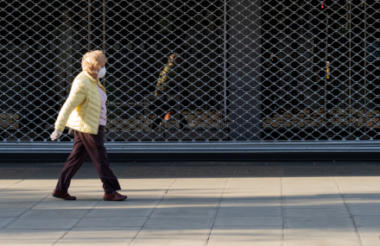Lockdown undoubtedly had a number of detrimental effects across society, some of which will be long-lasting. However, it also did what it was designed to do. It limited the spread of coronavirus, brought the number of cases down and enabled the NHS to not be overwhelmed by the pandemic.
However, as restrictions have been lifted, we are seeing cases rise again. At the time of writing, they have often surpassed 3,000 a day. Whilst this is nowhere near as high as the peak earlier in the year and, thankfully, hospitalisations and deaths currently remain low, it has raised the spectre of a future lockdown. Already we have seen a number of local lockdowns.
One fear is that with the colder winter months approaching, the number of cases will increase further and will lead to more people needing hospital treatment.
The rules on socialisation have been tightened as a result of the uptick in cases. The “rule of six” is an attempt to clarify the rules and make them easier to understand. How long this will be in place remains to be seen.
No matter how long the rule lasts, people’s behaviours in some areas may well have changed for good. It seems almost certain that, after having to adopt working from home, more businesses and organisations will allow flexible working arrangements. Although some will be itching to return to the office after a enforced prolonged absence, it is likely to be a different place. Many of their colleagues will want to take advantage of the opportunity to work from home more regularly. They will want to embrace the freedom to work outside the normal nine to five, in a way that better fits their lifestyle when needed. This was probably always eventually going to the case, but lockdown has demonstrated how well this way of working can work.
Another trend that has probably been accelerated is the rise of online shopping. High street sales were already dropping and during lockdown people’s only shopping option was online.
This will have implications for charities that operate a retail network. The Charity Shop Survey 2020, which is featured in this issue, was conducted during lockdown, but its data refers to the period before the virus struck. It shows that the decline of the high street was already affecting charity shops.
The world is changing fast and charities need to be working hard to adapt.
Tristan Blythe, editor, Charity Finance
Related articles













